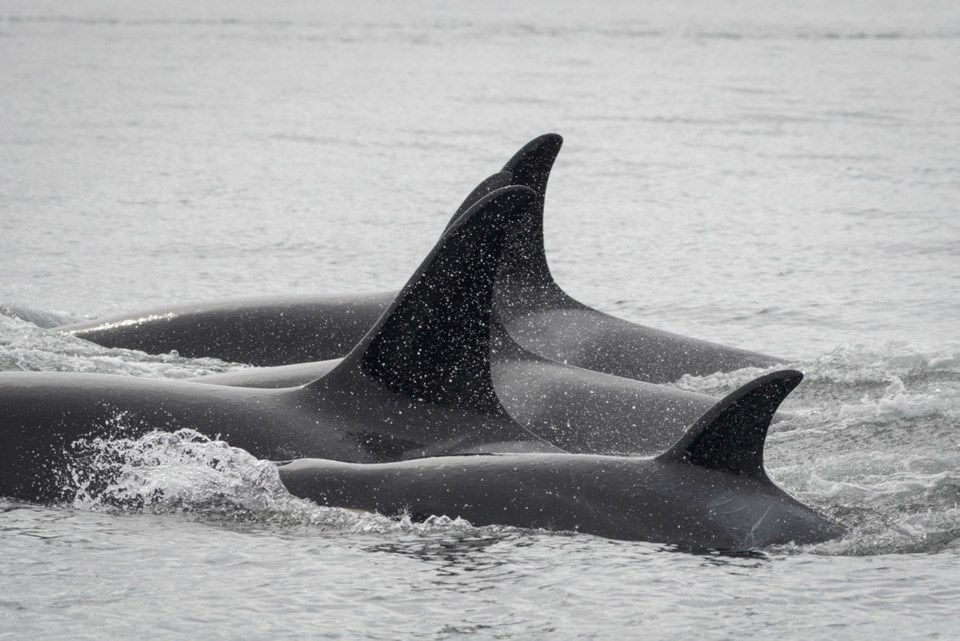An ailing killer whale that became the focus of cross-border rescue efforts is missing and feared dead.
The three-year-old whale known as J50 or Scarlet has not been seen for several days despite sightings of her mother and the rest of their pod.
The Center for Whale Research in Friday Harbor, Washington said the last known sighting of J50 was Sept. 7.
Canada’s Fisheries Minister Jonathan Wilkinson, however, said J50 was seen the afternoon of Sept. 9 off the San Juan Islands.
“We are increasing water surveillance in hopes of finding her,” he said on Twitter. “Our goal is she survives in the wild to contribute to the recovery of her species.”
The Department of Fisheries and Oceans in Canada and the National Oceanic and Atmospheric Administration in the U.S. launched a massive cross-border search effort Thursday.
The NOAA alerted the West Coast Marine Mammal Stranding Network and reported that flights in and out of the San Juan Islands were watching for the whale.
Anyone spotting J50 stranded on a beach was urged to call the Marine Mammal Incident Hotline in Canada at 1-800-465-4336 or the U.S. hotline for stranding reports at 1-866-767-6114.
The DFO said teams were standing by in case J50 required medical treatment.
By Thursday evening, however, there were still no sightings of J50 and the Center for Whale Research listed her as “presumed dead.”
“The Center for Whale Research has had a vessel on the water looking for J50 for the past three days,” the agency said. “We have seen all the other members of her family during these outings.”
If J50 is dead, it’s the second major loss for her pod this summer.
In July and August, a female killer whale known as J35 spent 17 days carrying the carcass of her calf, which died shortly after being born on July 24.
The high-profile cases have focused international attention on the plight of southern resident killer whales, whose numbers have dwindled to 75 and now — if J50 has died — to 74 in three pods. The pods have not had a successful birth in three years.
Researchers blame the decline on multiple factors including pollution, boat noise and a shortage of Chinook salmon, the orcas’ preferred food.
Officials had hoped that J50, born in December 2014, might eventually reproduce and assist with the species’ recovery.
In recent days, they talked about capturing the juvenile whale in the event she becomes stranded or separated from her pod. They said the controversial step would only be taken as a last resort to treat the whale and release her back to the wild.
Researchers have been monitoring J50 since noticing her emaciated state. The joint Canada-U.S. rescue team has twice used a dart to inject the whale with antibiotics, but her condition appeared to be worsening before she disappeared.
Joseph Gaydos, a wildlife veterinarian with the SeaDoc Society in Washington state, saw J50 a week ago and described her as the thinnest killer whale he’d ever seen.
“She was like this little Energizer bunny that just keeps going and going, and definitely captured our hearts,” he said. “But I don’t want to leave you in any false hope. This is a very sick whale.”
lkines@timescolonist.com



